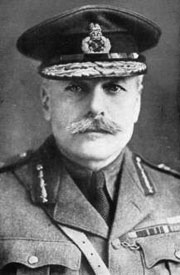SIR DOUGLAS HAIG 1861-1928


After serving in India, South Africa and the Sudan, Haig became director of military training at the War Office in 1906 and was heavily involved in the formation of the British Expeditionary Force (BEF).Haig commanded the First Army Corps in 1914 and earned great praise for his performance at Mons and the 1st Battle of Ypres.
In December 1915, when the BEF's original commander, Sir John French, was judged unsuited to the job, Haig took over.He commanded the BEF during the bloody and unproductive campaigns and Passchendaele (3rd Battle of Ypres), and his relationship with Prime Minister was often tense and difficult.A conventional cavalryman through and through, Haig was more willing to embrace the new technologies of the and machine-gun than is often recognised.
However, he did find it difficult to adapt from commanding small forces in colonial wars to commanding mass armies in a European conflict and, until at least the middle of 1917, he was forced to operate within the constraints of a military alliance in which Britain was the junior partner.Haig was commander of British forces during the final push against the Germans in 1918, and he emerged from the war with great credit.
He was voted ?100,000 by a grateful nation and was made Earl Haig in 1919. The rest of his life was devoted to the welfare of ex-servicemen through the work of the Royal British Legion and the Poppy Fund that bore his name.Haig remains a figure of great controversy. On the one hand, he must shoulder part of the blame for failing to call off the 1916 Somme offensive - with its catastrophic loss of life - but in 1918, it was Haig who argued that no further British lives should be wasted and that the war should be stopped.

0 Comments:
Post a Comment
<< Home